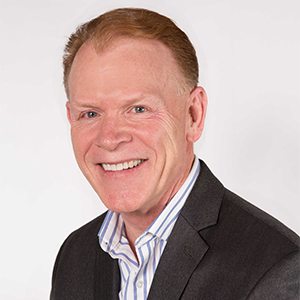I never thought I’d find myself telling 500 people, at California Society of Association Executives‘ largest event of the year, about a personal health issue. But you never know where your association management career (and personal life) will take you.
As it so happens, I found myself faced with the issue of skin cancer in the summer of 2017. I learned a few things along the way about managing my own health care, and I hope sharing those lessons may be helpful to you, a family member or a friend.
The Problem
The skin cancer I had (on my cheek) went undiagnosed for several years, even after I pointed it out to two different family doctors. Still that little voice in my mind told me something was wrong. It’s an odd feeling to believe something is not quite right, but not know what it is—even after the doctors had checked it out. While I do like and trust my doctors, they are human and can make mistakes. After several years, however, the color in the area changed slightly and the shape grew. So, after some persistence on my part, I was referred to a dermatologist. A biopsy was taken and a diagnosis was made.
I am fortunate that my skin cancer was a basal cell carcinoma, which is slow growing and does not spread easily. It is almost always fully treatable. This was the case with me—the surgery, while significant, fully removed the cancer, and I’m now good to go.
The Decision
By the time I had the surgery, our big Seasonal Spectacular trade show was coming up. At that point, I still had a lot of swelling on my face so it was pretty obvious that something had happened. I was unsure of how to approach my situation during the event, so I had some choices to make… give my typical speech at lunch… or not. Let people know what happened… or not. Walk the trade show… or not.
Ultimately, I thought it was important to be upfront and explain what had happened. Otherwise, people would be guessing or left to wonder. More importantly, I decided to share my story so that others might benefit from the lessons I learned from this experience.
I’m really glad I did. I had many people tell me that they were going to get something checked out they’d been putting off. I also had more than a few wives tell me they were going to encourage their husbands to do the same. I think men are especially prone to think, “It’s no big deal” and take no action or wait. The support I received was also tremendous and very gratifying.
The Lesson
I learned that I am the person in charge of my own health care. I know my body better than anyone, and I’m sure the same is true for you. So, if you think something is wrong, whether it’s skin cancer or something else, bring it up to your doctor and be persistent until you feel satisfied it’s been fully addressed.
Sometimes it takes a bit of courage and fortitude to be contrary with your doctor or the medical establishment, but I encourage you to trust your gut and follow through. I like to think of my doctor as my partner, but not the person in charge of my health care. That would be me.
The American Cancer Society says that one in five people will get some form of skin cancer during their lifetime. 1 in 5! While most are basal cell and fully treatable, the truly dangerous cancer (melanoma) takes the lives of over 10,000 people each year.
It’s more than a bit ironic that as the CEO of CalSAE, I tell executives all the time to trust their gut, but in this case, I did not take my own advice for too long. Now I am applying this professional lesson to my health care—I’m the person in charge… and so are you.




